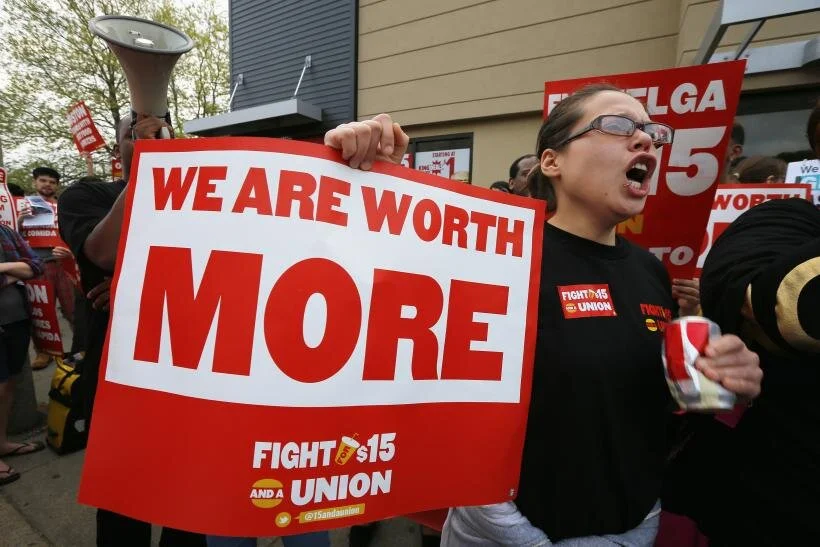The Long Battle of Raising US Minimum Wage
It’s been more than 12 years since the Congress increased the federal minimum wage of $7.25/hour, despite the majority of Americans supporting it.
A recent Pew Research Center study has illustrated the public stand on this issue with statistics showing two-thirds of US citizens favor a $15 federal minimum wage.
Though about 24 states have increased their minimum wages through state legislations, the debate over raising the minimum wage is gaining steam more than ever, as the raise introduces its own set of political and economical challenges.
The political challenges
US economic policy is more dependent on politics rather than economic sensibilities.
In the past, the Democrats party has attempted to increase the minimum pay multiple times. In 2013, president Barack Obama called for the raise to $9/hour. The same year, the Democrats party introduced a bill to increase minimum pay to $10.10/hour but the proposal did not pass. Recently, president Joe Biden had attempted to insert $15/hour lowest pay in the $1.9 trillion Covid-19 relief bill, but the provision got blocked by the Senate.
Republicans have been opposed to increasing the minimum wage and have continued to block efforts by Democrats to do so.
Unions such as the National Federations of Independent Businesses, the US Chamber of Commerce and the National Restaurant Association play a crucial role in ensuring a decisive bargaining power in matters of raising wages, working conditions and benefits. Yet, more than three-quarters of these organisations’ political contributions go to Republicans, as reflected in the result of Raise the Wage act of 2019 (97% of Democrats voted in favor while 98% of Republicans voted against it).
Why higher minimum wage?
Minimum wage is the basic living wage. As the cost of living is higher each year, the minimum pay has stagnated, resulting in millions not being able to afford rent and basic needs, living on the edge of poverty.
Around 13% of Americans live on minimum wage and half of them provide essential services, yet, as CBS News reported in October 2020, one out of four Americans is unemployed or living below the poverty line.
By gradually raising the federal minimum wage to $15/hour, it will help lift millions of workers out of poverty and by the same token, help stimulate business and economic growth as people now have the ability to spend more. Furthermore, the low minimum pay has been costing taxpayers over $100 billions a year as the government is forced to spend more on cash welfare, food stamps, Medicaid, and other welfare services.
Not only raising the minimum resolve economic problems but also racial and gender discrimination. Statistics have shown POC (person of color) and women are significantly underpaid than their white counterparts and also face more exploitation and abuse at the workplace.
What’s next?
The pandemic has reduced profits for businesses and demand for workers. While corporations and businesses are looking to recover from the economic crisis, increasing the minimum wage at this time will introduce inflated costs. Small businesses also don’t generate enough revenue to afford a higher minimum pay for workers and eventually leads to cutting short on costs and worse, shutting down. It is not certain that the economy will be positively impacted by raising the wage as companies can adjust by also increasing their costs of products and services, making things more expensive.

